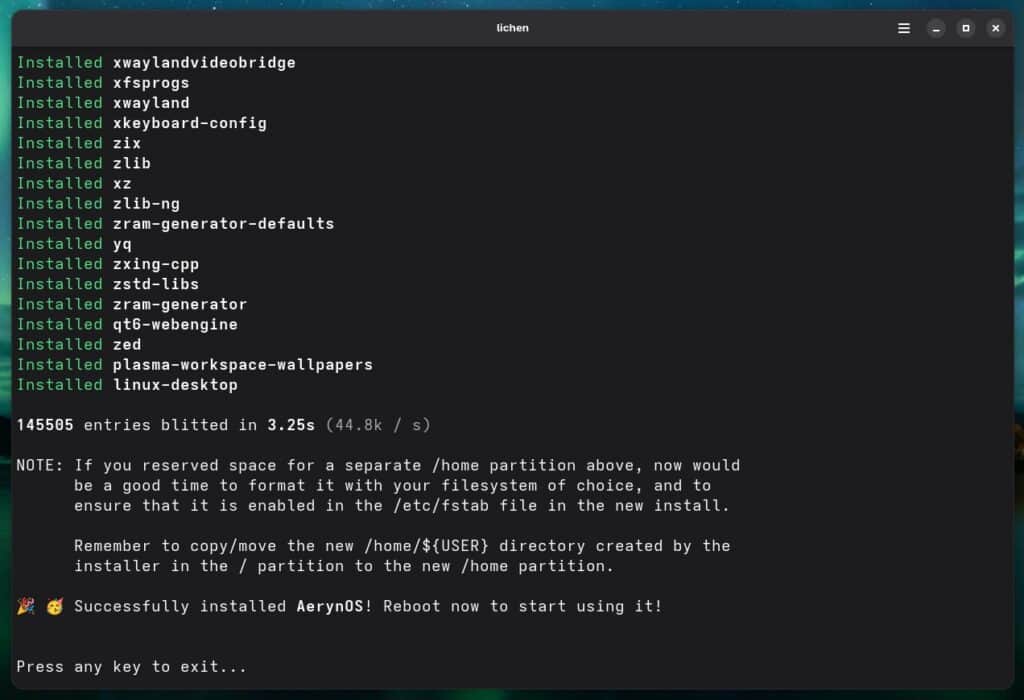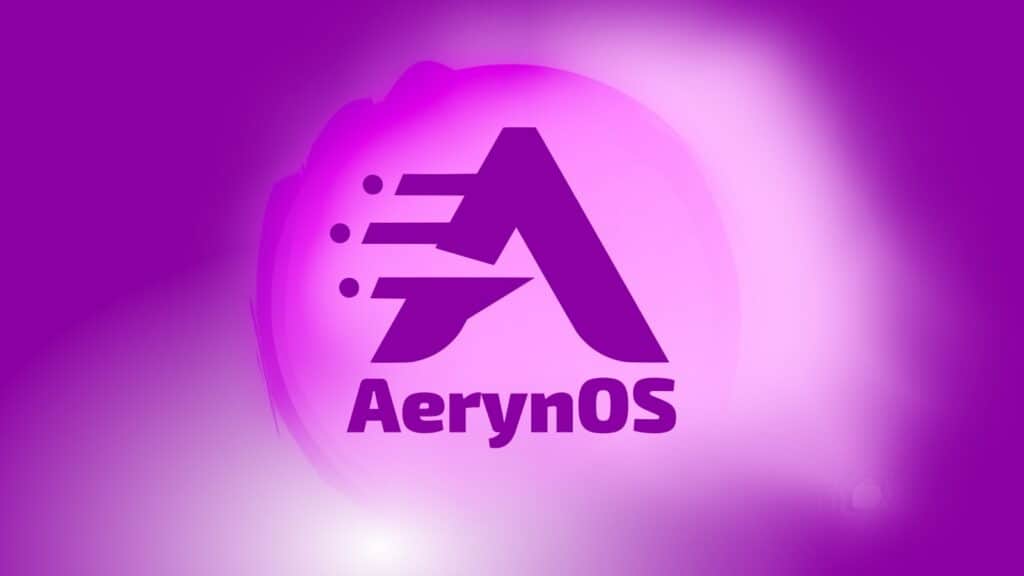AerynOS, an atomic-update-based (not to be confused with immutability) still-in-development Linux distro, currently in alpha stage, has shared its latest project update for October 2025. Here is what is more important to note.
The newly fresh ISO ships with the latest GNOME 49.1, KDE Plasma 6.5.1, and System76’s COSMIC Beta environments. It’s built on top of the Linux kernel 6.16, paired with updated components such as Mesa 25.2.5, PipeWire 1.4.9, Wine 10.17, and Node.js 22.21, among others.
As with previous releases, the ISO primarily serves as a vehicle for the ‘lichen’ net installer, which can install GNOME, KDE Plasma, COSMIC, or a terminal-only environment, always pulling the newest packages from AerynOS repositories at installation time.

A major change in this update is switching back from LLVM’s libc++ to GNU libstdc++. According to the devs, the transition, although involving hundreds of rebuilds across the repository, reduced patch maintenance and fixed long-standing issues—most notably a Firefox Widevine DRM plugin crash affecting video conferencing.
The development team also focused on enhancing the Moss and Boulder tools, the core of AerynOS’s package and build management ecosystem. In light of this, the moss state verify command, once limited to a single thread, now runs tasks in parallel, dramatically improving verification speed. Plans are underway to implement progress feedback for a smoother user experience.
Boulder itself has received quality-of-life improvements, such as automatic license detection during package creation.
And here’s something important to note — AerynOS doesn’t include a graphical installer. Instead, the installation takes place entirely in the terminal using its Rust-written, in-house (and currently heavily in development) Lichen installer. What I mean is this:

My personal tests went smoothly — the distribution installed without any issues, which is a significant improvement compared to just a few months ago, when bugs plagued the process.
The installation itself isn’t complicated; the only slightly tricky part is setting up the correct disk partitions beforehand. After that, the installer walks you through the rest with a few simple questions to help you choose your preferred setup.
More information on managing AerynOS states and using the moss package manager can be found here.
For now, it’s worth noting that managing the different OS states is not yet fully functional, according to my tests — switching to an older state and deleting the current one active causes the system to break after reboot. Since this is still an alpha release, that’s understandable for the moment, but hopefully it’ll be fixed in future updates.
Finally, according to the developer’s plans for November, the distro will focus on deepening work on infrastructure capabilities, refining the Moss system-model implementation, and continuing to expand its documentation.
For more information, see the report on AerynOS’ blog.

In Greek it means light and elegant
I dunno, I feel like I’m not going to use an OS whose name is that close to “Aryan”
This is either the most virtuous comment I’ve read or the dumbest.
Just joking – dumbest. Definitely dumbest.
Looks beautiful
Now it’s just a matter of waiting for Ikey Doherty to get tired of the project and abandon it, just like he did with Solus, back when it was still based on Debian. He’s a master at abandoning projects he barely starts.